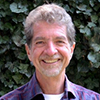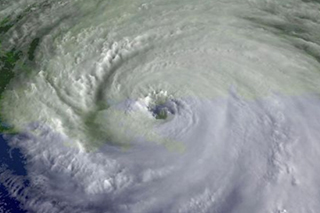SARASOTA, Fla. (Jan. 14, 2019) – Learn how climate change impacts hurricanes, red tide and sea-level rise, and what it all means for Sarasota and Manatee counties during a daylong conference Jan. 25 at USF Sarasota-Manatee.
The conference, “Adapting to a Changing Climate: Challenges & Opportunities,” is open to the public with advance registration and will feature panels of scientists, engineers, government officials and CEOs engaging in a series of discussions about climate change.
Welcoming remarks begin at 8:30 a.m. The conference will run until 3 p.m. and include lunch with paid admission. The event will be held at USFSM’s Selby Auditorium, 8350 N. Tamiami Trail, Sarasota. Tickets are $50 and available at usfsm.edu/climate. The event is free to USFSM students and faculty.
the panelists will focus on climate change’s effects globally, including on Florida, and how local cities and counties are adapting. In addition to exploring the impacts on weather, sea-level rise and red tide, the experts will discuss how climate change will affect infrastructure along coastal areas, and what challenges might confront the local economy as governments and businesses adapt to the changing environment.
Event speaker Bob Bunting, an atmospheric scientist and former meteorologist at the National Oceanic and Atmospheric Administration, says

climate change is real and already taking place, so the focus should be on adaptive strategies.
“Florida has a 1,450-mile-long coastline that is the second longest coastline in the United States, and there is more than $7 trillion worth of real estate on the Florida shoreline, so we have high risk, but we also have high motivation to adapt to climate change and prevent the worst impacts from it,” Bunting said. “I think it’s very important that we bring this down to the local level and that we stop arguing about who’s responsible for climate change because, in fact, we’re having it.”
The day-long conference will explore adaptive approaches to climate change, including potential economic opportunities.
“We’ll talk first about what the big problems of climate change are, and what’s likely to happen, but then we’re going to bring it down to the Florida level and then down to the regional level, and how governments are doing,” Bunting said. “Then we’ll bring it down even further with how companies are dealing with climate change, what the opportunities are to meet the threat, because climate change, in my view, will be one of the biggest economic opportunities that the state of Florida will have in the next 50 years.”
The conference will include a Q&A with conference speakers. It’s being organized by USF Sarasota-Manatee in partnership with Cumberland Advisors and the Global Interdependence Center.
The speakers include:
- Dr. Karen Holbrook was named regional chancellor for the University of South Florida Sarasota-Manatee on Jan. 2, 2018, after serving as executive vice president at USFSM and senior advisor to the president of the University of South Florida system. Previously, she served as interim president at Embry-Riddle Aeronautical University, senior vice president for global affairs and international research at USF; senior vice president for research, innovation and global affairs at USF; and as senior advisor to USF President Dr. Judy Genshaft. She has served on numerous boards, advisory panels and councils in education and health-related fields and was an active biomedical researcher and NIH MERIT Award investigator early in her career. She earned bachelor’s and master’s degrees in zoology from the University of Wisconsin in Madison and a doctorate in biological structure from the University of Washington School of Medicine.
- Bob Bunting is an atmospheric scientist, businessman, serial entrepreneur and CEO whose focus includes hurricanes, climate warming, adaptation and mitigation, satellite earth imaging, optical computing and stock market modeling. He founded the University Corporation for Atmospheric Research’s (UCAR) Corporate Affiliates Program in the 1980s and later co-founded the UCAR Foundation. These enterprises began the outreach program of the world-renowned National Center for Atmospheric Research (NCAR), where he worked as a scientist with the goal of protecting and commercializing intellectual property developed at NCAR.
- David Kotok, chief investment officer and founder of Cumberland Advisors. Kotok holds a bachelor’s degree in economics from the Wharton School of the University of Pennsylvania, and master’s degrees in organizational dynamics and philosophy from Penn. His articles and financial market commentary have appeared in The New York Times, The Wall Street Journal, Barron’s and other publications, and he is a frequent contributor to Bloomberg television and radio, Fox Business Network and other media outlets.
- Dr. Robert Corell, principal of the Global Environment Technology Foundation. Corell is a professor at the University of Tromsø and the University of the Arctic’s new Institute of Circumpolar Reindeer Husbandry. He is head of the U.S. office for the Global Energy Assessment, and in 2010 he founded the non-profit Global Science Associates, an interdisciplinary nucleus for the world’s best science experts and “collaboratories.” He served as vice president for programs and policy at the Heinz Center from 2006 to 2009 and recently completed an appointment as senior research fellow in the Belfer Center for Science and International Affairs at Harvard University’s Kennedy School of Government.
- Tom Harmer, manager of the Town of Longboat Key. Harmer has more than 33 years of experience working in local government in Titusville and Tallahassee as a city manager, fire chief, emergency manager and executive director of community development. In 1999, he was recognized by the Florida legislature as Florida’s Fire Chief of the Year and in 2006 by the Florida League of Cities as a finalist for City Manager of the Year.
- Stevie Freeman-Montes, sustainability manager at the City of Sarasota. Freeman-Montes leads programs to conserve natural resources within city operations and collaborates with city planners on resiliency and sustainable development issues. Her projects include leading the city’s first-ever climate change adaptation plan, facilitating community input for Sarasota’s 100 percent renewable energy target, and managing resilient shoreline projects. Freeman-Montes previously worked in local government sustainability in Oregon and as a U.S. Peace Corps volunteer on the island of Yap, Micronesia. She holds a master’s degree in sustainable development and a bachelor’s degree in zoology.
- Lenny Landau, data analyst and engineer. Landau is a 1963 mechanical engineering graduate of West Virginia University. Landau worked for General Electric Aircraft Engines in Cincinnati for 39 years and consulted for 11 more years following his retirement in 2002. He received the Young Engineer of the Year award in 1970. He spent 20 years in various managerial positions as part of a joint venture with French-based SNECMA, developing and producing the most successful commercial aircraft engine in aviation history. Since moving to Longboat Key in 2002, Landau has applied his analytical skills to town budgets, beach nourishment, water and sewer systems, traffic, electric undergrounding, population cycle and the local impact of climate change/sea rise. His study of Florida’s west coast has helped lead to a more complete understanding of red tide.
Other speakers include:
- Patricia Healy, senior vice president, Cumberland Advisors
- Ed Chiles, chairman, The Chiles Group
- David McMahon, commercial lines executive, Atlas Insurance
- Jennifer and David Shafer, Shafer Consulting Inc.
For more information, check out this video:
